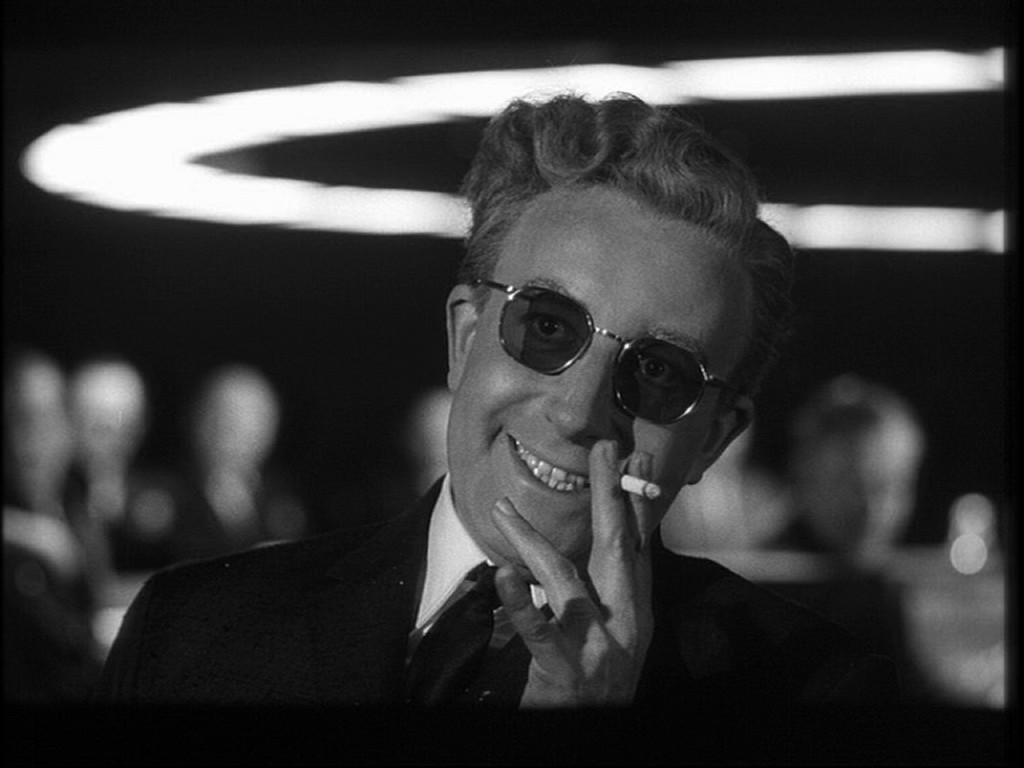
Here are some quotes from Christian Bale and film maker Mary Harron around the time of American Psycho's film release (in 2000):
From Reel.com:
Q: In a recent Interview magazine you called Patrick Bateman a dweeb. What do you think turns a dweeb into a psychopath, specifically in Patrick's case?
Christian Bale: I have an idea on that, but it has nothing to do with the history of the character or anything like that because I didn't even delve into that. It would have been too realistic an approach to Bateman, who is not a real character. It is not that he is in any way vague or confused at all — he is very sure of his sensibilities about what he likes, why he likes things, what annoys him. To me it is certainty about everything. His obsession with minute details. His certainty that his life is pointless. That drives him crazy because nothing has any meaning and consequently he loses any sort of a conscience and has no limits. He can just as easily shake your hand and smile at you and pay you a compliment or bite your jugular out. He doesn't feel anything and that is his own living hell.
Bateman is unable to relate/connect with human life. It's all surface; not deep. This is why he pays so much attention to his exterior. He does the 1000 crunches and uses the expensive bathing/grooming products and dresses in designer suits. He's a walking advertisement. It's all about brand names and products. It's all about what everyone else is doing. Where is everyone going to eat. What is everybody else listening to. Everyone is going to see Les Mis, so he has to get front row seats. Maybe his 'living hell' is the not being able to feel or care or think for himself.
Q: Mary Harron said in Filmmaker magazine that the movie was realistic up to a point. I would argue that the book is entirely surreal and I just wonder how you saw the film vis-a-vis the book?
Christian Bale: Yes, I do think it is surreal. I think the movie is very surreal as well. We never attempted for realism. I think that Mary is just saying that we weren't going for some sort of cartoonish exaggeration, but there is a heightening to it. That was something that we had to be very careful about, but which didn't become too massive that it was entirely caricature. It had to be somewhat of a parody.
I'm not sure how I feel about Bale's answer. The Huey Lewis scene in the film is a cartoonish (perhaps highly caffeinated performance). They weren't careful in that scene. The parody works when it's not overdone. Look at a scene like the business card scene or even the opening scene with Bateman going through his daily routine. The parody: a day in the life of the yuppie.
From Barnes and Noble.com:
B&N.com: The film's actually very satirical and funny, which is what Ellis claimed the book was all along. Mary downplayed the carnage and sharpened the social satire. It makes you wonder why Ellis needed all that excruciatingly detailed violence in the first place.
Christian Bale: Because he wanted to show that Bateman's obsession with details is the source of his insanity. That's what I see about Bateman -- his fixation on minutiae, and absolutely needing to get an answer for every little tiny thing, even though all the things he's interested in are completely shallow.
I don't think Bateman kills anyone. I don't think any of it is real. He's a cut-throat businessman. He kills Paul Allen, not literally but figuratively. They're all Paul Allens. Kill one and another one will replace him. You noticed how many VP's were at the office he worked at. Each business read: so and so. Vice President.
What do you all think?




2 comments:
Actually, he does kill people. There's a little hint about it in his later novel, Glamorama.
If the killing is literal, how is it funny? Is it funny? Is it supposed to be funny? Why is it in the novel/film?
In the film, the violence isn't as graphic (or gratuitous) as it is in the book--why is that, do you think?
I've heard Harron (film maker) say that the moments of violence are the weakest moments in the novel. I don't know. I like how cold and vapid the people are in Less than Zero, and how in those moments of violence, nobody reacts. I get it. But in Glamorama or American Psycho (from what I've read), I can't help but skim/skip over the moments of violence and ridiculous Penthouse Forum style sex scenes. Maybe the graphic sex and violence is to be compared to the graphic product placement--there's a parallel. A comment on commodity fetishism. I can see that now. Maybe.
Post a Comment